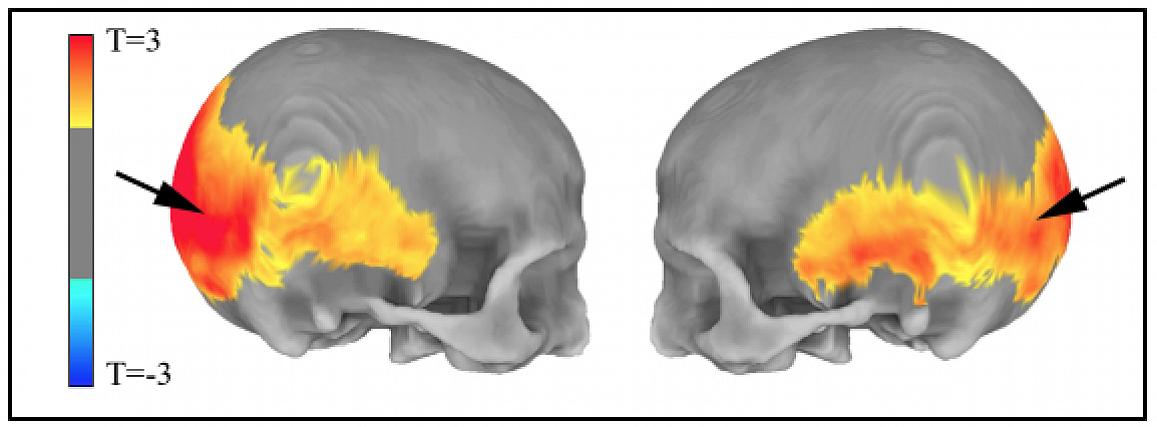“Residual echo” of ancient humans in scans may hold clues to mental disorders
Researchers from the National Institute of Mental Health (NIMH) have produced the first direct evidence that parts of our brains implicated in mental disorders may be shaped by a “residual echo” from our ancient past. The more a person’s genome carries genetic vestiges of Neanderthals, the more certain parts of his or her brain and skull resemble those of humans’ evolutionary cousins that went extinct 40,000 years ago, says NIMH’s Karen Berman, M.D. NIMH is part of the National Institutes of Health.
In particular, the parts of our brains that enable us to use tools and visualize and locate objects owe some of their lineage to Neanderthal-derived gene variants that are part of our genomes and affect the shape of those structures – to the extent that an individual harbors the ancient variants. But this may involve trade-offs with our social brain. The evidence from MRI scans suggests that such Neanderthal-derived genetic variation may affect the way our brains work today – and may hold clues to understanding deficits seen in schizophrenia and autism-related disorders, say the researchers.

MRI data shows (left) areas of the skull preferentially affected by the amount of Neanderthal-derived DNA and (right) areas of the brain’s visual system in which Neanderthal gene variants influenced cortex folding (red) and gray matter volume (yellow). Michael Gregory, M.D., NIMH Section on Integrative Neuroimaging
This page was last updated on Friday, January 21, 2022